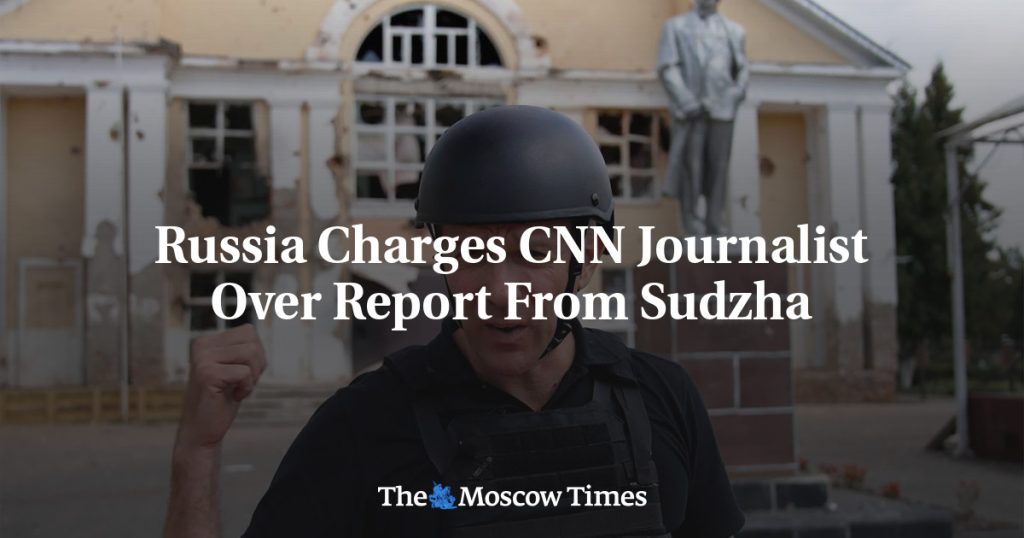Russian law enforcement authorities have charged a CNN reporter and two Ukrainian journalists for illegally crossing the border into Ukrainian-held territory of the Kursk region during a reporting assignment. The journalists facing charges include CNN reporter Nick Paton Walsh, as well as Ukrainian journalists Olesia Borovyk and Diana Butsko. If convicted, the charges carry a penalty of up to five years in prison, and the journalists are expected to be placed on an international wanted list. This incident is just one of several cases where foreign journalists have faced legal troubles while reporting on the conflict in Ukraine.
In a separate incident, Russian authorities also pressed charges against two Italian journalists from RAI for filming in the Kursk region town of Sudzha, which was captured shortly after Ukrainian forces launched an incursion on Aug. 6. Italy’s ambassador to Moscow was summoned over this report, and RAI announced that the journalists would return to Italy for safety reasons. Similarly, Russia’s Foreign Ministry summoned a senior U.S. Embassy official in Moscow over alleged provocative actions by American journalists reporting from Ukrainian-held parts of the Kursk region and alleged U.S. mercenary activity on Russian territory. These actions signify the growing tensions between Russia and foreign journalists covering the conflict in Ukraine.
The targeting of foreign journalists by Russian authorities highlights the challenges faced by media organizations reporting on the conflict in Ukraine. The criminal charges against the CNN reporter and other journalists for crossing the Russian border into Ukrainian-held territory demonstrate the risks involved in covering sensitive geopolitical issues in the region. The involvement of multiple countries in these incidents, including Italy and the United States, underscores the international ramifications of reporting on the conflict in Ukraine and the complexities of navigating the political landscape.
The actions taken by Russian authorities against foreign journalists raise concerns about press freedom and the ability of media organizations to report independently on conflicts and political events. The summoning of ambassadors and embassy officials over journalistic activities reflects the heightened scrutiny faced by media professionals covering sensitive issues in Russia and neighboring countries. The criminalization of reporting by foreign journalists not only threatens the safety and freedom of the individuals involved but also raises questions about the broader implications for press freedom and transparency in the region.
The challenges faced by journalists reporting on the conflict in Ukraine underscore the importance of independent journalism and the need to support media organizations that work to provide accurate and unbiased reporting on complex geopolitical issues. The Moscow Times, an independent news outlet in Russia, has faced obstacles and legal challenges in its reporting, with the authorities designating it as an “undesirable” organization and labeling it as a “foreign agent.” Despite these challenges, The Moscow Times continues to strive for independent journalism and is asking for support from readers to ensure its continued operations in the face of repression and censorship.
Overall, the incidents involving foreign journalists in the Kursk region and the subsequent legal actions taken by Russian authorities highlight the complexities and risks involved in reporting on conflicts and political events in the region. The criminal charges and summoning of embassy officials underscore the challenges faced by media professionals in navigating politically sensitive territories and the importance of upholding press freedom and journalistic integrity in the face of increased scrutiny and repression. As the situation in Ukraine continues to evolve, independent journalism plays a crucial role in providing accurate and unbiased information to the public, and supporting media organizations like The Moscow Times is essential in defending open and independent journalism against censorship and political pressure.














